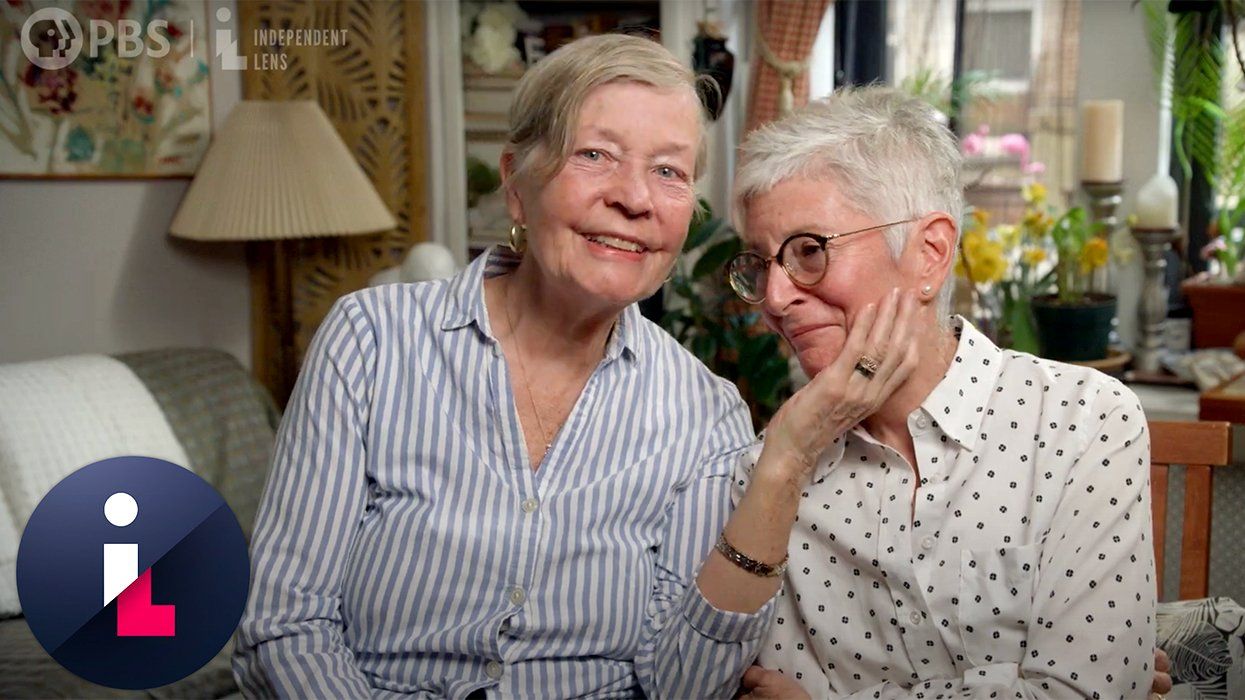Happy National Adoption Month! At our home, the month is not a traditional gay holiday time like How-can-I-turn-my underpants-into-a-costume? Halloween or Hi-Mom-and-Dad, this is my "roommate" Thanksgiving, but it's a big gay deal around our house. In November of 2009, during National Adoption Month, our social worker showed my husband and me a picture of a 5-year-old African-American boy in foster care. The boy who would become our son.
We had thought long and hard about all the ways we could become parents and decided that adopting through foster care was the best and most desirable option. We briefly considered surrogacy, but everyone in my family is a chemically depressed, tortured genius of some kind. Unleashing that kind of DNA just seemed unnecessarily cruel and expensive. I asked my husband if he wanted to make anyone pregnant. His breezy reply: "Nah, I'd rather keep trying with you for free."
During a fact-finding seminar we learned these grim statistics: At any one given time there are nearly 400,000 kids in foster care. One hundred thousand of them will not be reunited with their parents and are up for adoption. Today. Sixty-five percent of foster kids who age out of the system, emancipate with no place to live. Fifty-one percent are unemployed. Fewer than three percent go to college. Forty percent of people living in homeless shelters are former foster children, and a monstrously disproportionate percentage of our nation's prison population is made up of former foster youth. All because some kid, through no fault of their own, had no place to land.
During a foster-adopt seminar we heard about an 18-year-old girl, a straight-A student on her way to college and about to age out of the system. She still wanted to be adopted. When asked why, she said, "I'm going off to college. Don't you think I'd still want a family to go home to during Thanksgiving or Christmas? Don't you think I'd still want someplace where I felt I belonged?"
We completed the required six-week parenting course, our home passed the safety inspection, we got certified in CPR and first aid, and miraculously we passed our FBI background check. I was worried. I mean, it's not like I've robbed a bunch of liquor stores, but I have a past and it's colorful.
We became certified foster-adopt parents and our social worker told us about Zion. The minute we saw his picture we knew he was our kid. There's no rational explanation for how we knew. Staring at his picture felt like falling into the future. Cherubic and cheeky, he looked directly into the camera, confident and mischievous. As if he were about to impart a delicious secret we were dying to hear.
At 5 years old, a child's chance of being placed drops drastically. These dismal odds also apply to siblings, children of color, and self-identified LGBT youth. None of that occurred to my husband and me when we saw Zion's picture. We just knew that this kid, described to us as creative, affectionate, expressive, resilient, and spirited, was ours, and we had to meet him immediately.
We agreed to meet him and then, one day, later we were told that we were out of the picture. A relative stepped forward and volunteered to be Zion's legal guardian. Thanksgiving sucked that year. Christmas was mournful.
In January our social worker presented us with another potential case, which we both turned down. We just didn't feel the same way about this kid that we did about Zion. Our social worker said, "Let me check on Zion's situation. I'll call you back in 10 minutes." She called back 10 minutes later, breathless, "The placement with Zion's relative has been a complete disaster. You have to come pick him up tonight at 6."
And that's how we became dads. We picked him up, took him home, and nine months later he was legally ours.
Three years later, Zion is a class clown who loves sports and science. He's spoiled by an army of extended family, drag aunties, gay uncles, lesbian aunties, and transgender showgirls. It takes a Village People.
Culturally, he's a fascinating jumble of fabulousness. He's a fearless athlete who likes pretty girls and show tunes. He can swing a bat and do a Carol Channing impersonation. He drives me nuts, but I light up whenever he walks into a room. I just can't believe he's ours.
People often remark, "He's so lucky." I know they mean well, but it always feels like a slight against him. The truth is we're lucky. There's nothing I can give my child that compares to all he's given me. Being a parent requires so much kindness, patience, and understanding, and I don't possess any of those qualities. Being a parent is my last chance to become a better person. Fingers crossed.
I'll be speaking about foster adoption in Chicago (November 18), Los Angeles (November 20), Kansas City (November 21), New York (December 3), and San Francisco (December 5) this holiday season on behalf of RaiseAChild.US. RaiseAChild.US is a nonprofit organization that believes all children deserve a safe, loving, and permanent home. It educates and encourages LGBT people to build families through fostering and adoption to answer the needs of the 400,000 kids in our nation's foster care system. For more information or to RSVP, go to www.raiseachild.us. Hope to see you there!
ALEC MAPA is an ctor and comedian currently in production for a recurring role on ABC's Switched at Birth. Previously he has had recurring roles on ABC's Desperate Housewives and Ugly Betty as well as guest starring in more than 40 television shows. His one-man show Baby Daddy tells the story of adopting his son from foster care.















